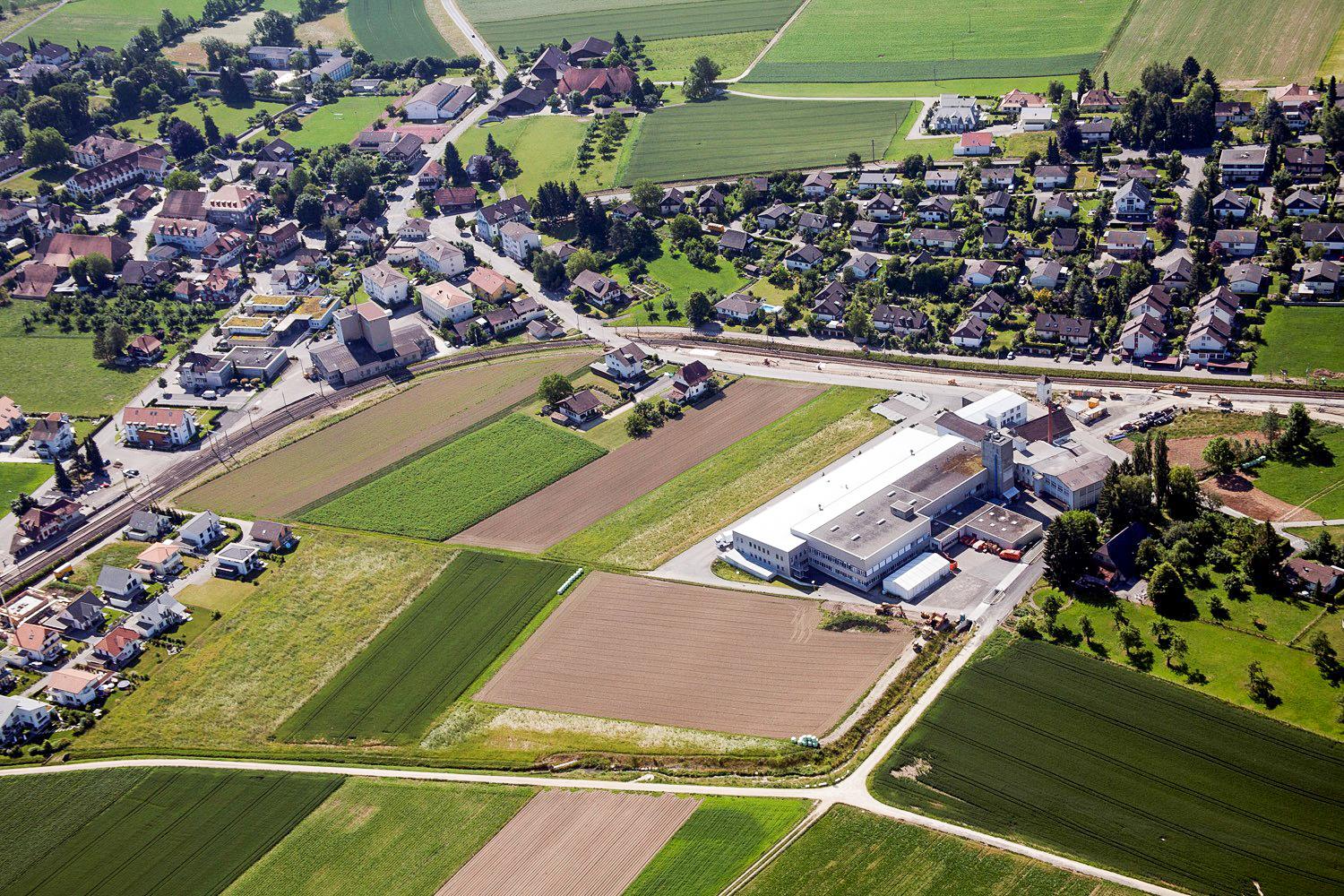When Swiss researchers take the initiative

A renowned energy specialist has called on Zurich’s cantonal parliament to replace old oil and gas heating systems with new, more sustainable technology. A special tool, the individual initiative, gives citizens an additional instrument to engage in politics.
It is not as if Swiss scientists have nothing to say in their fields of expertise – just take the experts at Geneva’s CERN research centre, others developing important robotic parts, or Bertrand Piccard and his round-the-world flight with Solar Impulse.
But most of them hesitate about whether to speak out in politics, limiting their role to acting as neutral experts.
Zurich-based architect Niklaus Haller is a bit of an exception. The 36-year old Haller and a group of likeminded scientists have decided to take an active role in society by contributing with their expertise.

More
Taking the future in our hands
Prominent support
Haller has the support of 42 experts, including professors from the most diverse science fields as well as the chancellor of Switzerland’s most prestigious university, Sarah Springman of the Federal Institute of Technology in Zurich (ETHZ).
The group wants to see all the old gas and oil heating technology in canton Zurich to be replaced gradually by a system that is free of CO2 emissions.
“Efforts made so far to protect the climate are insufficient in Switzerland,” says climate researcher Reto Knutti who backs the environmentally-friendly demand.
The professor says the necessary technology to eliminate fossil fuels in the building sector has existed for a long time. He points out an apartment building, renovated by the company Viridén + Partner, in the city of Zurich. The façade of the house is made up exclusively of photovoltaic elements.
Anti-elite
Haller used one of the simplest democratic tools to put his idea on the political agenda – the individual initiative. It allows every Swiss citizen in Zurich to take his proposals to the cantonal parliament, paving the way for a possible legal, or even constitutional, amendment provided a majority in parliament consents.
An individual initiative, as opposed to a people’s or parliamentary initiative, allows a Swiss citizen to influence legislation.
This special tool of direct democracy is only used in three of Switzerland’s 26 cantons: Zurich, Glarus and Appenzell Inner Rhodes.
They need a majority of votes of the citizens attending the annual open-air assemblies in Glarus and in Appenzell Inner Rhodes.
In Zurich, an individual initiative has to go through three stages. A minimum number of parliamentarians have to agree to take the issue to a plenary session. The cantonal parliament then discusses the initiative and votes on it. In most cases, voters have the final say on the proposal at the ballot box.
Zurich is one of only three Swiss cantons offering this direct democratic instrument.
The origins of the individual initiative date back to the emerging democracy movement in the middle of the 19th century, as Thomas Widmer, political scientist at Zurich University explains.
The idea was to break the elitist regime of a few important families in canton Zurich. By 1869, the people’s initiative – and eventually also the individual initiative – was enshrined in the cantonal constitution.
For an individual initiative to be successful, it first has first to be approved by a third of the 180 parliamentarians before the cantonal government has to draft a bill.
If such an initiative fails to make the quorum, it is abandoned. This has been the case with most proposals over the past decades.
Of the up to 20 individual initiatives debated in Zurich’s parliament every year, only between one and four on average makes it to the cantonal government level.
Haller’s proposal last year won 73 votes. The canton’s government is now preparing a draft law to implement the initiative, to be submitted to parliament at a later stage.
Limited success
Experts say one of the main reasons for the high rejection rate is that the proposals are either seen as too specific, or that it is matter of legislation for the federal authorities, not the canton.
Two examples from last year highlight this. The Zurich parliament was asked to decide on the rules for how often and how loud church bells should ring. Another proposal sought to scrap banking secrecy both at domestic and international levels.
This begs the question whether such individual initiatives do not take up too much time and effort for a parliament, considering that only very few proposals finally win approval and get implemented.
Political scientist Widmer admits that the success rate is “very modest”.
However, he stresses the indirect impact of the direct democratic tool, as it allows to bring to the fore a social problem which politicians may have ignored so far. It is not unusual for a parliamentarian to launch his or her own – possibly adapted and therefore more realistic – proposal after the original initiative has been thrown out.
Widmer says individual initiatives sometimes serve as “pressure relief valve”, giving citizens the opportunity to have their voices heard directly and immediately.
Direct participation
“The fact that there is such a participatory instrument is an asset,” says Widmer.
It allows citizens who do not necessarily have direct access to parliamentarians to feed their own ideas into the parliamentary procedure.
Architect Haller and his team hope that parliament will approve the government bill. A vote has to take place by the middle of next year. But he remains realistic.
“It takes more than one try for visionary ideas to win a majority,” he explains. Haller says he is also considering launching a people’s initiative, collecting the necessary 6,000 signatures from Zurich citizens, if parliament throws out his proposal.
He says there is no time to lose.
“We have to take the future in our own hands. And act now,” he says.
Adpated from German by Urs Geiser

In compliance with the JTI standards
More: SWI swissinfo.ch certified by the Journalism Trust Initiative














You can find an overview of ongoing debates with our journalists here . Please join us!
If you want to start a conversation about a topic raised in this article or want to report factual errors, email us at english@swissinfo.ch.